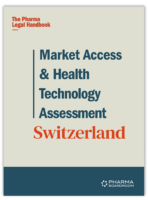Preclinical and Clinical Trial Requirements
Drew & Napier / Iraq
1. Are clinical trials required to be conducted locally as a condition (stated or implicit) for marketing approval?
In Iraq, it is not always explicitly required that the clinical trials be conducted locally for marketing approval. However, if local data are requested, companies must comply with these requirements. Local clinical trials might be required to understand how a product performs in the specific context of the Iraqi population, given its unique demographics and health profile.
2. How are clinical trials funded?
Clinical trials in Iraq are typically funded by the sponsoring company, which could be a pharmaceutical or biotech company, or a research institution. Funding could also come from academic grants, government programs, or partnerships with international organizations. Funding generally covers all the aspects of the clinical trial, including research, patient compensation, facility costs, and data analysis.
3. What are the requirements for pre-clinical and clinical trial protocols? Who must approve the protocols?
Preclinical and clinical trial protocols in Iraq must meet specifically ethical and scientific standards. These protocols typically include detailed plans to conduct the trial, including the study design, patient selection criteria, safety measures, and data analysis methods. The protocols must be approved by an Ethics Committee and often require review by the Iraq Drug Regulatory Authority “IDRA” under the Ministry of Health “MoH” before the trial can begin.
4. What are the requirements for consent by participants in clinical trials?
Consent from participants in clinical trials in Iraq must be informed and voluntary. The informed consent process involves providing participants with a clear information about the trial’s purpose, procedures, risks, benefits, and the right to withdrawal at any time. Consent must be documented, typically in writing, and must meet the ethical standards set out by the local ethics committee or other regulatory bodies.
5. May participants in clinical trials be compensated?
Participants in clinical trials in Iraq may be compensated, but this compensation should not be so high as to unduly influence or coerce participation. Compensation can cover expenses such as travel, time off work, and inconvenience caused by the trial, but it must be reasonable and in consistent with the ethical guidelines.
6. How are participants in clinical trials protected and indemnified against any harm that arises as a result of participation in the trial?
Participants in clinical trials in Iraq are protected by a combination of the informed consent, ethical oversight, and regulatory compliance. Sponsors of clinical trials are typically required to have insurance or indemnification provisions to cover any harm or adverse events that participants may experience during the trial. Additionally, the ethics committee reviews safety protocols to ensure participants’ well-being, and there are mechanisms for reporting and addressing the adverse events.


































































